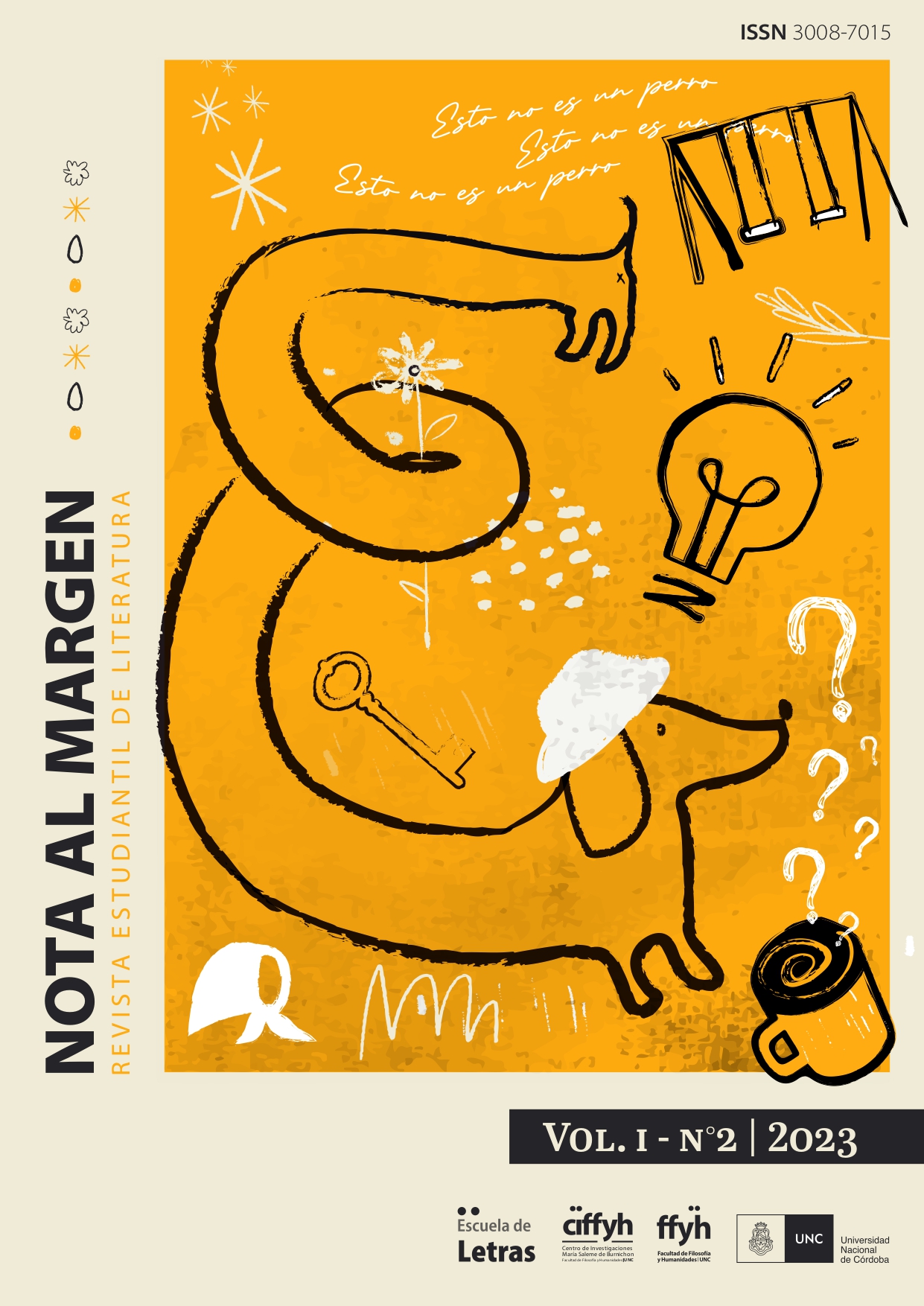An Object-Oriented Literary Analysis of the Technoliterary Works of Tisselli and Läufer
Keywords:
technopoetics, technique, digital, Tisselli, Läufer, Object-Oriented OntologyAbstract
To our understanding, Eugenio Tisselli's Degenerativa and Regenerativa and Milton Läufer's El Aleph a Dieta can be considered technoliterary objects; therefore, this paper argues that they belong to an artistic-technical genealogy that challenges the capitalist narrative and the author-spectator relationship. Furthermore, Object-Oriented Ontology (OOO) is used to analyze how these works reveal duality between real objects (RO) and sensual objects (SO), and how time and space are generated from this relationship. The ability that these pieces of writing have to create disruptive aesthetic experiences which question capitalist linear temporality and, meanwhile, allow the emergence of perspectives other to the human, is highlighted. Finally, the collective construction of these works is discussed. Ultimately, we approach digital literature as a form of critical art that challenges the traditional conception of technology, literature and the interaction between humans and digital objects.
Downloads
References
Adorno, T. W. (1983). Teoría estética. Orbis.
Anderson, B. (1983). Comunidades imaginadas. Reflexiones sobre el origen y la difusión del nacionalismo. Editorial digital: Primo.
Benjamin, W. (2015). La obra de arte en la era de la reproductibilidad técnica. Discursos interrumpidos I. Taurus.
Berardi, F. (2007). Generación post-alfa. Patologías e imaginarios en el semiocapitalismo. Tinta Limón.
Berardi, F. (2020). Fenomenología del Fin. Sensibilidad y mutación conectiva. Caja Negra.
Berner, J. (2020). Unhelpful Tools: Reexaming the Digital humanities through Eugenio Tisselli’s degenerative and regenerative. En Electronic Book Review. https://doi.org/10.7273/kbfc-4145.
Bootz, P. (2011). La poesía digital programada: una poesía del dispositivo. Poéticas tecnológicas, transdisciplina y sociedad. Exploratorio Ludión.
Brillenburg, K. (2006). Multimediality, Intermediality, and Medially Complex Digital Poetry, RiLUnE, 5, 1-18. http://www.rilune.org/mono5/3 brillenburg.pdf
Bürger, P. (2009). Teoría de la Vanguardia. Las cuarenta.
Crutzen, P. (2002a). The “anthropocene”. J. Phys. IV France 12(10), 1-5. https://jp4.journaldephysique.org/articles/jp4/abs/2002/10/jp4Pr10p1/jp4Pr10p1.html DOI: 10.1051/jp4:20020447
Crutzen, P. (2002b). The effects of industrial and agricultural practices on atmospheric chemistry and climate during the anthropocene. Journal of Environmental Science and Health, Part A Toxic/Hazardous Substances and Environmental Engineering (37)4, 423-424. https://www.tandfonline.com/doi/abs/10.1081/ESE-120003224
Crutzen, P. (2005). Human Impact On Climate Has Made This the “Anthropocene Age”. New Perspectives Quarterly, 22, 14-16. https://onlinelibrary.wiley.com/doi/abs/10.1111/j.1540-5842.2005.00739.x
Deutsche, R. (2007.) Lo público. [Conferencia]. Curso Ideas recibidas. Un vocabulario para la cultura artística contemporánea. En el Museu d’Art Contemporani de Barcelona (MACBA).
Freeman, E. (2010). Time Bind. Queer Temporalities, Queer Historities. Duke University Press.
Harman, G. (2011). The quadruple object. Zero Books.
Harman, G. (2017). Object Oriented Ontology: A New Theory of Everything. Penguin Books.
Heidegger, M. (1953). Ser y Tiempo. Escuela de Filosofía Universidad ARCIS.
Heidegger, M. (1993). La pregunta por la técnica. Editorial Universitaria.
Heidegger, M. (1996). El origen de la obra de arte. Caminos de bosque. Alianza.
Huyssen, A. (2002). Después de la gran división. Adriana Hidalgo.
Kozak, C. (2018). Comunidades experimentales y literatura digital en Latinoamérica. Virtualis, 9(17), 9-35. https://doi.org/10.2123/virtualis.v9i17.272
Läufer, M. (2015). El Aleph a Dieta. https://miltonlaufer.com.ar/aleph/
Morton, T. (2010). The Ecological Thought. Harvard University Press.
Morton, T. (2016). Dark ecology. For a logic of future coexistence. Columbia University Press.
Rancière, J. (2005). Sobre políticas estéticas. Museo de Arte Contemporáneo.
Tisselli, E. (2005). Degenerativa. https://motorhueso.net/degenerativa/
Tisselli, E. (2015). Regenerativa. https://www.motorhueso.net/regenerativa/regenerativa.php
Published
How to Cite
Issue
Section
License
Copyright (c) 2023 Tobías Leiro

This work is licensed under a Creative Commons Attribution-NonCommercial 4.0 International License.
Usted es libre de:
Compartir — copiar y redistribuir el material en cualquier medio o formato.
Adaptar — remezclar, transformar y contruir a partir del material.
La licenciante no puede revocar estas libertades en tanto usted siga los términos de licencia
Bajo los siguientes términos:
Atribución — Usted debe dar crédito de manera adecuada,
brindar un enlace a la licencia, e indicar si se han realizado cambios.
NoComercial — Usted no puede hacer uso
del material con propósitos comerciales.









